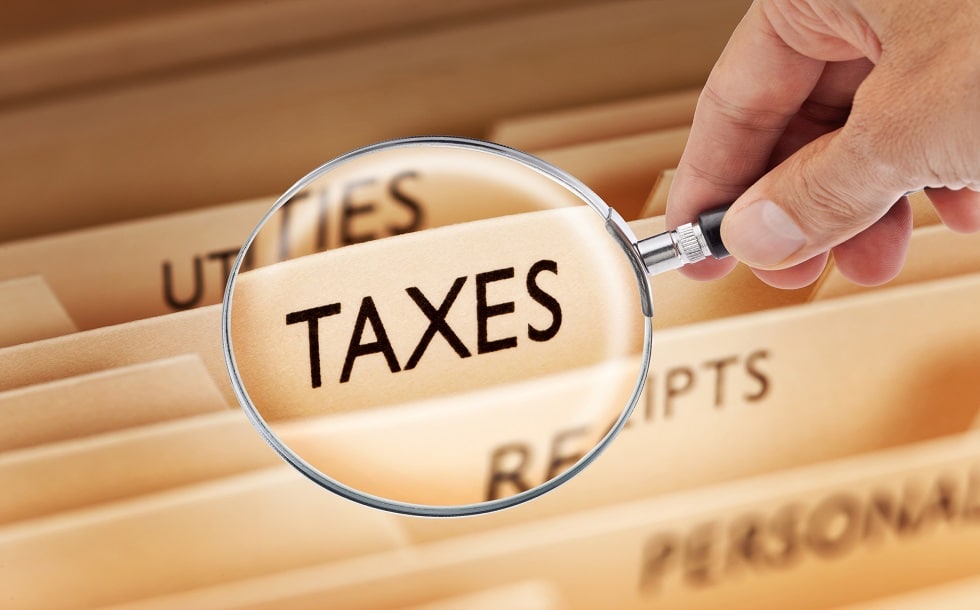Tax can be complicated, but it is crucial that you charge the right tax on products that you sell, and file the relevant information with HMRC, so that you can pay the correct tax. Here at Elver E-Commerce, we work with many e-commerce companies to ensure that all their financials are compliant and efficient. Make sure your Shopify business is structured in the best possible and most tax-effective way, with the Shopify Accountant team here at Elver E-Commerce.
Types of Taxes for Shopify Store Owners
There are different taxes on Shopify that will apply to your business, and while these tax rates may not all apply to you, you do need to understand them. Making sure that you are paying or charging the right tax for the right product at the right time, will make sure that your business remains legal.
Value Added Tax (VAT)
If you turn over more than £85,000 per year, other than for tax-exempt products, you need to be VAT registered and charge VAT to your customers. VAT is normally charged at 20% on most products, a reduced rate of 5% for items for a limited range of items such as child’s car seats, or zero-rated at 0%, for items such as books or children’s clothes. As well as this, some items are VAT exempt such as education (in certain circumstances) or medical services, and these sit outside the scope of VAT. Whilst both zero-rated and VAT-exempt have no VAT charge applied, they are two separate categories. You must include zero-rated VAT sales in your VAT return, but you do not have to include VAT-exempt sales.
Income Tax
Income tax is the tax that you pay on the profit that you make as a sole trader. This tax is calculated from all your sales minus all your costs, the resulting profit is what you are charged tax on. The personal allowance is deducted, and you will pay income tax on the remainder, at the same rate as an employed person would on their payslip.
Corporation Tax
Business tax is the tax paid by businesses. If you register as a business, then you are liable for corporation tax. When you work with us, we will discuss with you the best setup for your Shopify website. This will depend on the turnover, growth potential, and your circumstances. We will always help you to decide on the most financially effective solution for you. As ever, there are pros and cons to being a sole trader or a business.
VAT for Shopify Sellers and Shopify Stores
If you are turning over more than £85,000 of VATable products or services, then you will need to be VAT registered and charge VAT to your customers. Once you are VAT registered, you can then claim the VAT back on purchases. You will need to submit a VAT return to HMRC and pay any VAT owing to them.
VAT Registration
If you can see your growth is heading towards taking you over the VAT threshold, then start planning. Our team will help you with the VAT registration and ensure that everything is set up correctly.
VAT Collection and Invoicing
Your sales invoice will now have to show the VAT element of the sale for your customers. Whether you advertise your goods with or without the VAT will depend on what you are selling and your customers. Businesses tend to work in ex-VAT, as most businesses claim the VAT back, so it is the ex-VAT price that is the relevant figure. Whereas, if you are selling to the public, you will advertise the price including VAT.
VAT Returns
Your VAT return must be submitted on time. It will show all the VAT you are claiming back on purchases, against all the VAT you have charged. You will need to pay HMRC the balance. In some circumstances (e.g. you sell zero-rated products) you could be entitled to a refund.
VAT Flat Rate Scheme
With this tax settings, you simply pay HMRC a percentage of your sales, at an agreed rate. This can be beneficial to some businesses. You must turn over less than £150,000 to apply, and we would suggest discussing this with an accountant, as some people may find this financially beneficial whilst others may not.
VAT and International Sales
If you sell overseas, you don’t charge VAT for certain destination countries. Your Shopify system can be set to adjust to the buyer’s country and show prices accordingly. You may have to register for VAT (or the equivalent) in other tax jurisdictions if you sell internationally.
Income Taxes for Shopify Sales and Store Owners
Everyone must pay tax on the money they earn. If you are employed you pay tax on PAYE, if you work for yourself you will either pay tax as a sole trader or as a limited company.
Sole Traders
Sole traders simply pay tax on the balance between their costs and their income, once the personal allowance has been deducted.
Limited Companies
It can be advantageous to trade through a limited company, but it is sensible to discuss this with an accountant to choose the best setup for you. We will always discuss your future plans, as sometimes it is best to set up a business for the long-term benefits, based on your plans for growth.
Shopify Record Keeping and Compliance
Shopify is an excellent way to keep track of all your transactions. Using good accounting software that works with Shopify will help you to maintain good records and help you to stay compliant. We can advise on the best accounting system for your needs.
Tax Deductions and Tax Allowances
One of the advantages of working with proactive accountants such as ourselves is that we will actively ensure that you are making full use of any tax deductions and tax allowances that you qualify for.
Handling Tax Audits and Tax Investigations
HMRC can choose to investigate anyone. This can be a stressful and expensive affair, as the onus is on you to prove that you have recorded and filed everything correctly. We will support you with any audit or investigation, and ensure that all your records are correct for HMRC.
E-commerce and Digital Services VAT Changes
It is your responsibility to keep up with any changes that affect your business. This can be challenging, which is why it is good to work with trusted professionals who can help you out with different aspects of your business. Significant changes to the VAT rules were applied in July 2021 mainly around selling to the EU. If you are unsure about any aspects of your business, it is always sensible to seek professional advice. If you are starting to sell internationally or are upscaling your e-commerce company, then now is a good time to seek advice.
Getting Professional Help and Advice with Your Taxes on Shopify
It is a legal requirement to adhere to the VAT rules and to pay tax on any earnings. Whether you have a hobby business turning over £5,000 a year, or a quickly growing business that is approaching the VAT threshold, you will still benefit from the expertise of a Shopify Accountant. Our team is experienced with Shopify accounting and will be able to give you relevant advice that is tailored to your business. Generic advice can be unhelpful, as each situation is different, and the solution will vary. To learn more about how a Shopify Accountant can help you and your business, head over to the Shopify Accountant page to read more.
As you consider the future of your Shopify business, we invite you to explore how our specialist Shopify accounting services can help you. Reach out to us today, please give us a call on 01942 725419.


